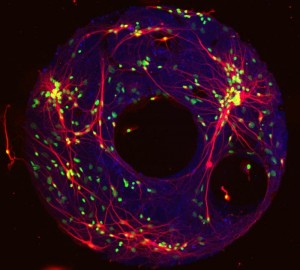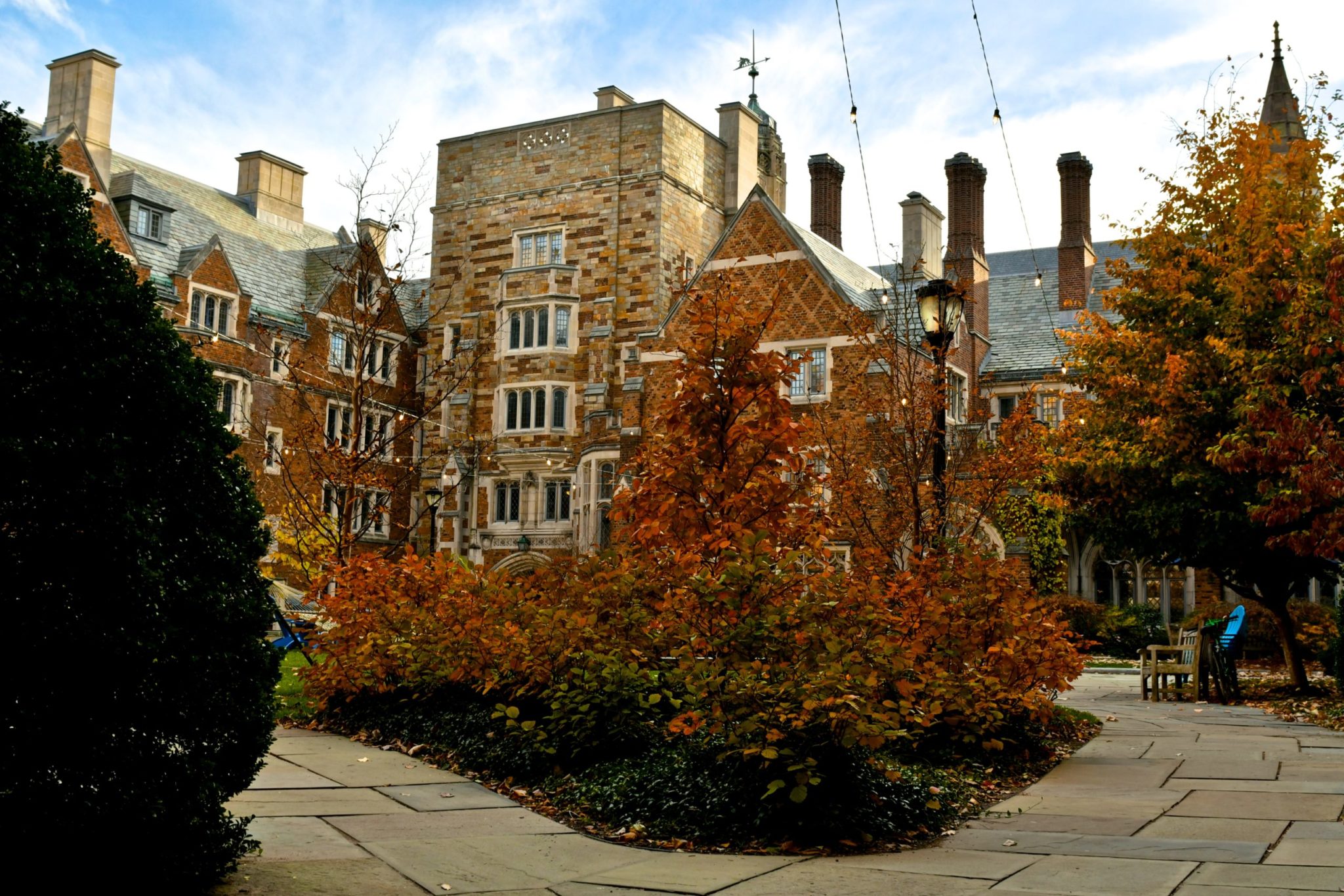X
X
Leaving Community
Are you sure you want to leave this community? Leaving the community will revoke any permissions you have been granted in this community.
No
Yes
X
NIFarious Ideas: 12s Window into Memory Formation
NIFarious Ideas: 12s Window into Memory Formation
Using a silicon wafer with adhesion proteins, researchers at the University of Pittsburgh have opened a new window to study prolonged neuronal activity - particularly that behind memory formation.
Above is a florescent image of the neuronal network developed at Pitt. It shows individual neurons (blue), adhesive proteins (green) and neuronal connections (red) on the silicon disk that allow for investigation of neuronal communication and activity. Reported in the journal Lab on a Chip, "Ring-shaped neuronal networks: a platform to study persistent activity" describes this pioneering work.
Using embryonic rat hippocampal cells, the researchers were able to excite the neurons using an electrical pulse and investigate the sustained network activity for 12 seconds - a process with a natural duration of around .25 seconds. Therefore, they were able to extensively observe neuronal transmission and prolonged maintenance of the electrical charge.
This will offer neuroscientists a novel way to study the cellular and molecular mechanics of persistent neuronal activity, which is key to understanding memory formation. In the future, they hope to understand the factors at the foundation of neuronal transmission including the genetic and epigenetic factors that influence electrical communication between neurons.
Extending our window of observation from .25 seconds to 12 seconds...now that is dangerous..and for that we thank you!
NIFarious Ideas is a regular weekly column on the NIF Blog that appears every Friday. We seek to highlight the avant-garde, the dangerous, the progressive, the cutting edge in software tools, databasing, ontologies, searching, data collecting and distributing, and of course, neuroscience trends. Join us each Friday!
X









